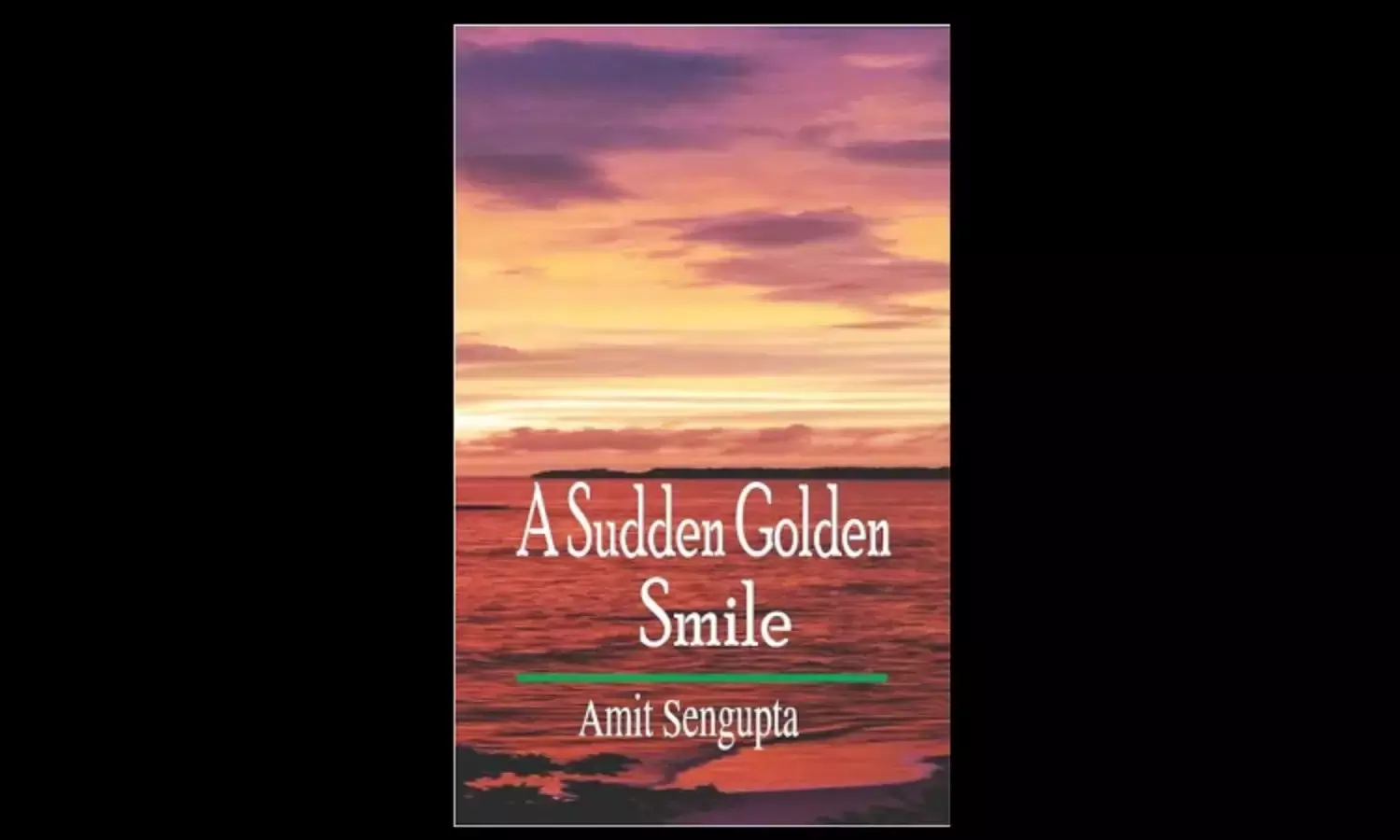
‘A Sudden Golden Smile’ is a somewhat optimistic title for a collection of essays published amid global turmoil. After all, this is a time when Silicon Valley’s restless and reckless tech billionaires are threatening to take over the world and reduce it to a white supremacist suzerainty.
When Donald Trump wishes to convert Gaza into a resort where he, Benjamin Netanyahu and Vladimir Putin can bask in the Mediterranean sun after evicting Palestinians from their homeland. Closer home, in India, the rich are getting richer and the poor poorer, even as they are trapped in a comatose state, fed on a diet of fake news, religious nationalism and hate distributed through the mainstream press, social media and WhatsApp groups.
In this disturbing Neo-Nazi age we live in, no one is safe. Everyone is a target—both young and old—if you so much as question the establishment. Suddenly, the world as we knew it has been turned upside down. What was once fair has become unfair; yesterday’s truth is today’s lie; old values, whether in art, culture, or politics, have been discarded. Existing laws have been scrapped or recast to suit the state's various divisive agendas. Old villains are the new heroes.
The fifty-five essays by journalist and editor Amit Sengupta, under review, attempt to make sense of this chaotic world. It examines the twists and turns that have shaped the conflict-ridden and unsettling first twenty-five years of the new millennium.
Amit, the journalist, is visibly pained by what he sees. Beyond the high-rises and flyovers, the luxury cars, and the vestiges of wealth and affluence among a minuscule minority, he can see joblessness, poverty, frustration, marginalisation, exploitation, and a decay of values that, until recently, held society together. The prognosis looks grim.
And yet, amidst the gloom, Amit espies a golden smile—perhaps a source of inner strength, inspiration or light. It comes from deep within and gains radiance from those who still fight for their rights and stand up against injustice and discrimination, both social and religious.
It also comes from the written word—novels, poems, books on philosophy and history—as well as art and cinema. It is rightly said that we can learn a great deal from the experiences of others, as history often repeats itself.
As a journalist/editor, Amit has faithfully upheld the highest traditions of his profession. Those who know him will vouch that he has refused to compromise or succumb to any pressure or temptation. He has been fiercely independent and steadfast in his beliefs at a time when several in the profession have taken the easy way out by cosying up to those in power and mindlessly endorsing the fake signs of progress articulated in government press releases.
Many have become unapologetic cheerleaders of the ruling dispensation and openly flaunt their power through association. And some others, fearing reprisals, have chosen to play it safe and go silent.
But Amit has soldiered on. He is repulsed by fascism. He finds the extended incarceration of young Muslim intellectuals like Umar Khalid, Gulfisha, Sharjeel, and Khalid Saifi for protesting the communal and anti-constitutional CAA reprehensible. He minces no words when he attacks the establishment that misuses the law to punish innocents. He is opposed to dictatorial tendencies worldwide. He believes they must be resisted and not allowed to flourish.
Amit consistently brings a progressive strand to his writing, whether it be his thoughts on director Martin Scorsese’s film ‘Killers of the Flower Moon’ or his essay on Jacinda Ardern’s graceful exit as New Zealand Prime Minister in January 2023.
In the concluding paragraph of his tribute, Amit notes. “Indeed, it is easy to be a dictator. However, it could be much easier to become a true democrat and humanist, with deep love for the masses, a connect with the social conscience, while celebrating the eternal values of empathy and compassion. Jacinda Ardern, in her sudden goodbye, tells us of this sublime realism.”
Amit’s collection of essays and reportage covers a wide range of topics, from the genocide in Gaza and the war in Ukraine to the civil strife in Manipur and Myanmar.
The reporter in him has taken him to cover Gond adivasis in central India and their political struggle for forest rights. He has trekked through the dense forests of the Dudhwa National Park, along the Indo-Nepal border, to meet the Tharu adivasis, and record their lives and concerns.
In Delhi, you find him expressing his solidarity with wrestling champion Vinesh Phogat, who would have won a silver at the Paris Olympics, but for the officials accompanying the Indian contingent not backing her at a crucial moment.
He did not hesitate to throw his weight behind farmers agitating over the proposed Farm Bills, which were later withdrawn. He did not pull any punches when attacking the jury for awarding the Nargis Dutt Award for Best Feature Film on National Integration to Vivek Agnihotri’s “The Kashmir Files”—a film, by several accounts, considered crass and unworthy of the award.
Finally, a word about the writing: it is passionate, poetic, and yet hard-hitting. Amit incorporates his extensive reading, as well as his understanding of cinema and music, into his essays and reportage. He does not write to dash off a column, but because he feels compelled to write — because he has something to tell his reader.
“A Sudden Golden Smile” is not a book to be skimmed on a Delhi-Mumbai flight. You will enjoy it better if you can savour it slowly over cups of chai or a good old peg of Old Monk.

